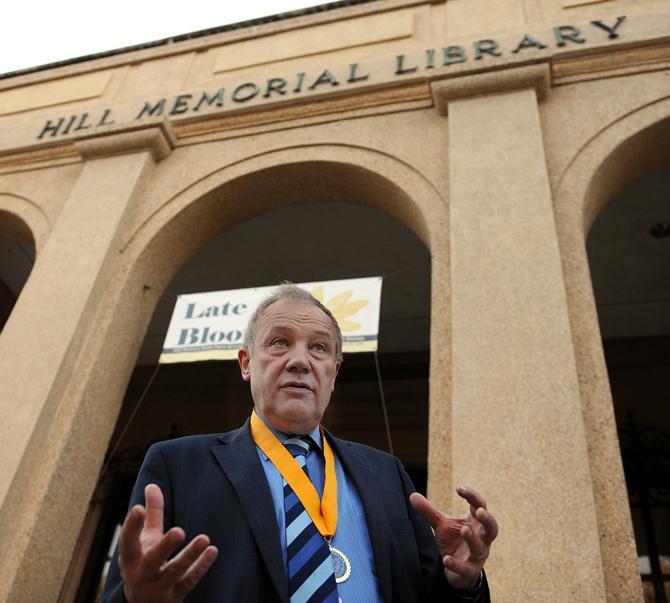Former Czech ambassador and revolutionary Martin Palouš described how important youthful spirits during revolutions, particularly in regard to the Velvet Revolution.
Velvet Revolution leader and former ambassador of the Czech Republic to the U.S. and one of the leaders in the Velvet Revolution Martin Palouš addressed students at the Hill Memorial Library with a Valentine’s Day theme to his speech on resisting tyranny and totalitarianism.
“[Human rights] is not only our Czech point of view that is taking stake here, but something we all have in common that we can celebrate on St. Valentine’s Day,” Palouš said.
Palouš was presented the Order of Merit from the Eric Voegelin Institute after the presentation
Palouš generally refrained from speaking about his own diplomatic efforts and accomplishments, but instead spoke about the work of the recently deceased first president of the Czech Republic, Vaclav Havel.
“He was someone who struggled for the cause of human rights,” Palouš said.
Havel, Palouš and many others led the movement to resist Soviet tyranny leading up to the Velvet Revolution, liberating several Eastern European nations.
In 1968, when the Soviets invaded, Palouš said he found himself with the options to immigrate, get used to the change or try to resist totalitarianism with Havel and others.
Palouš said he and Havel did not want people to end up mindless like the totalitarianism wanted.
In regards to the peaceful methods of the Velvet Revolution, Palouš said he was certain that even though revolutions are about abrupt changes, the peaceful methods were the right approach.
He said this era of revolution opened opportunities for a new form of communication such as Charter 77, a petition by Czech scholars and politicians demanding the Communist government to recognize human rights.
“It was the most important embodiment of the idea of human rights,” Palouš said.
When states and society are subject to moral sentiments, or something that is biding them and is sacred and unconditional, that is human rights, Palouš said.
In human rights, “politics are subject to law and law is not subject to politics,” Palouš said.
Havel was a playwright and used language as his main tool, Palouš said.
“Havel was famous for his theater. Later, when reflecting in prison on the social power of theater, he said it brings people together and lets people contemplate human identity,” Palouš said.
Thus, to remember his legacy, the Vaclav Havel Library has been established in Prague, Palouš said.
Palouš is the director of the library and said it was inspired by American presidential libraries to collect records and documents, publish research, conduct outreach for non-government organizations, and most importantly, stand to remember those concerned for human rights around the world.
“Thanks to people like Havel, we have moved from the 20th to the 21st Century,” Palouš said.
“It was the most important embodiment of the idea of human rights.”





